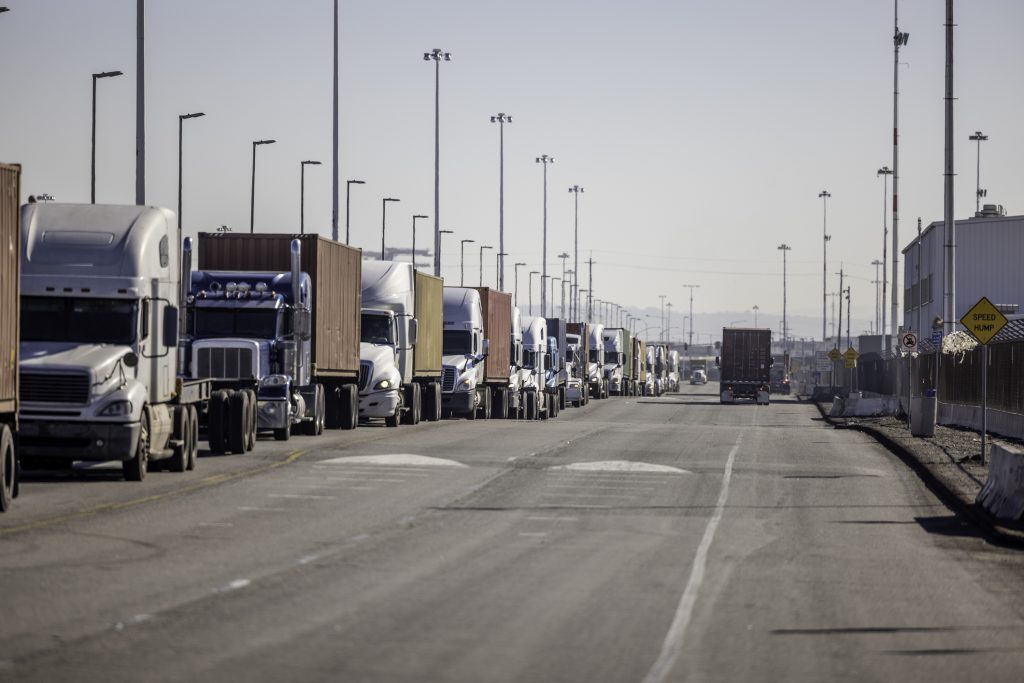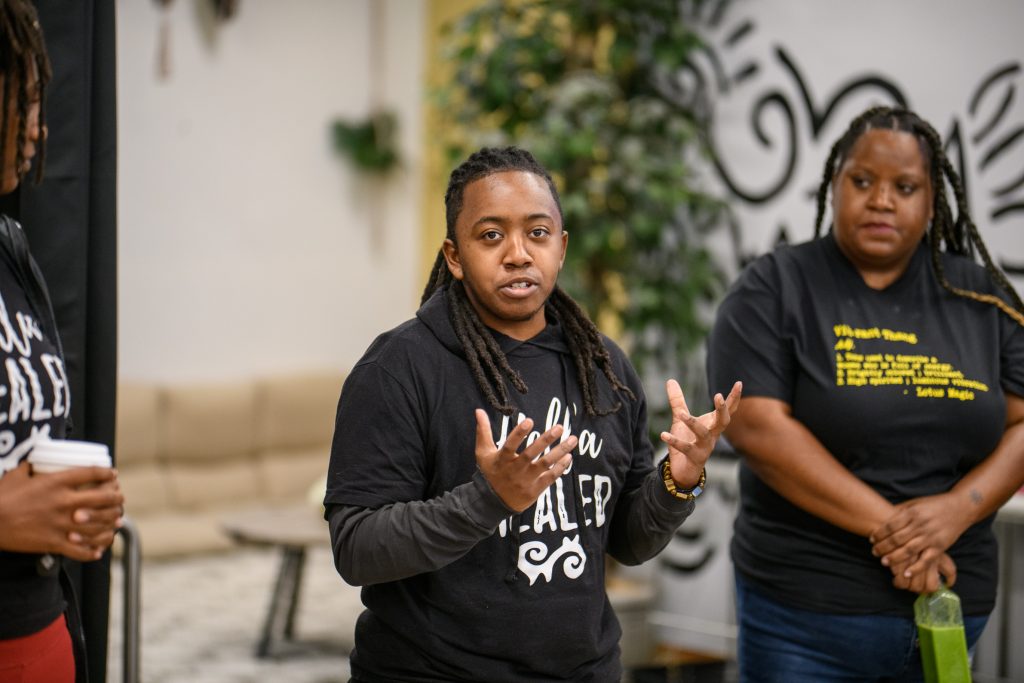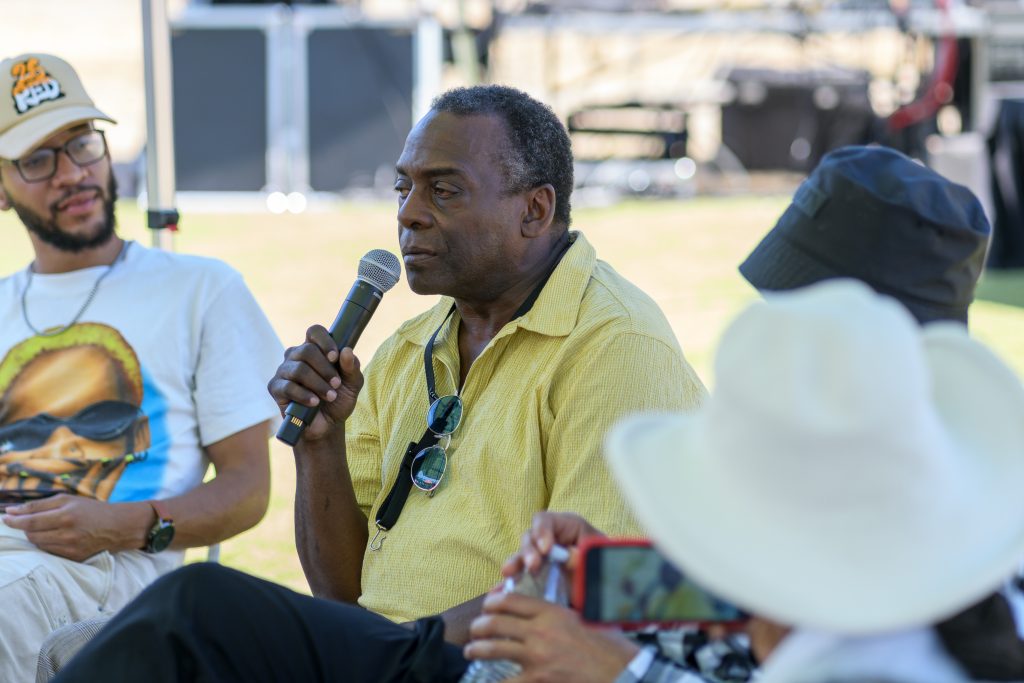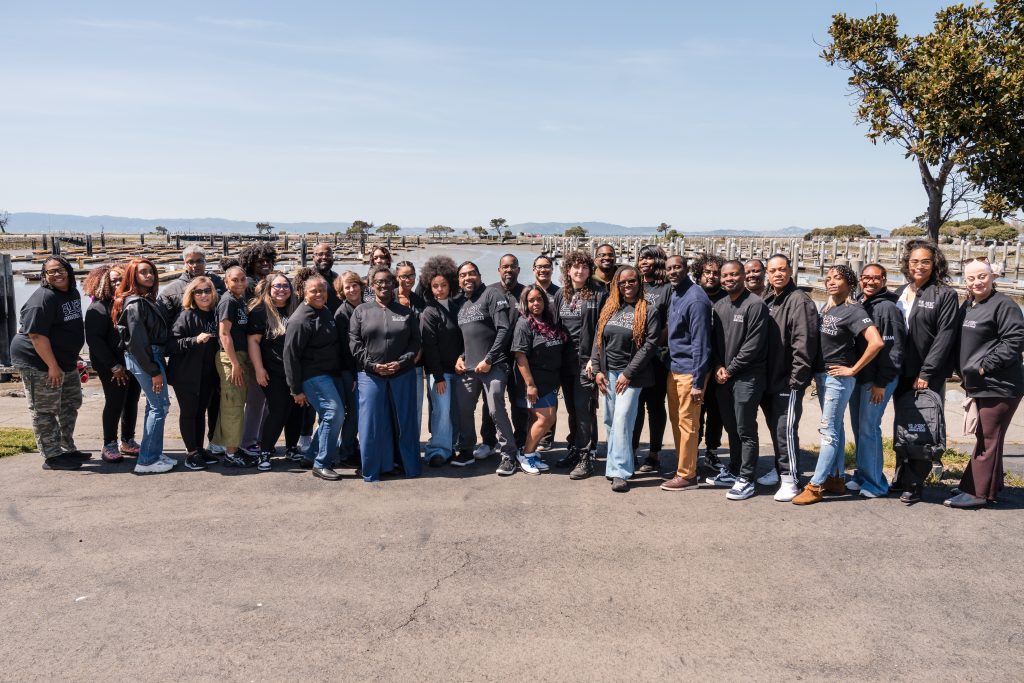
Port of Oakland Environmental Provisions &
What They Mean for East Oakland
A Crucial Step Towards a Healthier East Oakland
The Port of Oakland is proposing significant revisions to its environmental policies, which could directly impact the East Oakland community’s air quality and economic well-being. These proposed changes aim to reduce emissions from airport operations, aligning with broader goals for a healthier environment. However, the Black Cultural Zone Community Development Corporation (BCZCDC) recognizes that the transition to electric vehicles (EVs) involves a complex lifecycle, from raw material extraction to manufacturing, electricity generation, and end-of-life recycling, each with potential environmental and social burdens that disproportionately affect Black and Brown communities globally.
The Black Cultural Zone Community Development Corporation (BCZCDC) is working to ensure that the voices of East Oakland residents are central to this critical discussion, advocating for a truly “just green transition” that not only improves local air quality but also addresses the broader environmental justice implications of the entire EV supply chain. This packet provides essential information about these proposed environmental changes and explains how you can participate in shaping their implementation to serve our community best.
We Need Your Voice

What You Need to Know About the Port of Oakland’s Proposed Changes
The Port of Oakland proposes revisions to its Environmental Provisions (Chapter 9.01 of the Administrative Code). These revisions build upon similar provisions approved in 2023 for maritime tenants and now aim to extend those requirements to airport tenants operating Ground Support Equipment (GSE) at Oakland Airport.
What are the proposed changes?
Goal: Advancing Towards Zero Emissions: The Port’s primary objective with this revision is to advance towards zero emissions, aligning with their “2020 and Beyond Plan” vision for achieving zero emissions seaport operations.
New Requirements for Airport Tenants: Airport tenants will be required to:
Develop an Implementation Plan: Submit a written plan for converting all their GSE to Zero Emissions or Near Zero Emissions, or acquiring new Zero Emissions or Near Zero Emissions GSE.
Submit an Equipment Inventory: Provide a written inventory of all GSE used during the prior calendar year, including equipment type, engine size, age, hours of use, and fuel type.
Why are these changes significant for East Oakland?
Cleaner Air Locally: These provisions can significantly reduce air pollution from airport operations by requiring airport tenants to transition to zero-emission equipment, leading to cleaner air for East Oakland communities.
Broader Environmental Justice Concerns: While EVs offer local air quality benefits, it’s crucial to acknowledge the potential for environmental burdens to be shifted or created elsewhere in the EV supply chain. These include:
Raw Material Extraction (Mining): The mining of critical minerals like lithium, cobalt, and nickel for EV batteries can lead to deforestation, habitat destruction, water pollution, soil contamination, and human rights abuses, disproportionately impacting Indigenous communities and nations in the Global South.
Battery Manufacturing: The production of EV batteries is energy-intensive and can generate significant CO2 emissions and localized pollution from hazardous materials and airborne particles, often concentrated in communities of color.
Electricity Generation for Charging: While EVs have zero tailpipe emissions during operation, the environmental impact of their use phase depends on the electricity source. If charging relies on fossil fuel-based power plants, pollution can be shifted to communities near those plants, which are often disproportionately Black and low-income.
End-of-Life/Recycling: Current EV battery recycling processes, particularly pyrometallurgy, can produce toxic emissions and waste. Recycling facilities are often disproportionately located in environmental justice communities, creating new “sacrifice zones”.
Economic Impact: While the goal is environmental improvement, it’s crucial to consider the potential financial impact on small airport tenants and workers. BCZCDC is advocating for equitable transition support to ensure these changes benefit everyone.
Potential Job Transition: The shift to zero or near-zero emission equipment may alter job requirements, potentially leading to job displacement in some areas while creating new opportunities in others, such as the maintenance and operation of new technologies.
Financial Burden on Small Tenants: Small airport tenants may face significant costs in acquiring new zero-emission or near-zero-emission Ground Support Equipment (GSE), which could strain their financial resources compared to larger businesses.
Supply Chain and Availability: The availability and cost of new zero-emission equipment and associated infrastructure (like charging stations) could impact the readiness and financial viability of the transition for all tenants, particularly smaller ones.
Advocating for Equitable Implementation

Our advocacy for equitable transition support includes:
- Financial Assistance: Advocating for the Port to establish grants, subsidies, or low-interest loan programs designed to help small airport tenants purchase or lease new zero-emission or near-zero-emission GSE.
- Workforce Development: Supporting job training and re-skilling programs for workers impacted by the transition, ensuring they have the necessary skills for new technologies and can secure employment. This aligns with BCZCDC’s existing workforce development initiatives.
- Technical and Navigational Support: Providing direct technical assistance and guidance to small businesses on equipment choices, funding applications, and compliance requirements.
- Flexible Timelines: Advocating for realistic and flexible timelines for the transition, allowing small companies adequate time to adapt and invest without facing undue penalties.
- Community-Centered Pilot Programs: Proposing pilot programs that test different transition strategies and support mechanisms in East Oakland, ensuring solutions are tailored to local needs and challenges.
We Need Your Voice

Your Voice and Opinion Matters
BCZ Wants to Hear From You
Here’s how you can get involved and share your perspective
Visit the BCZCDC Website: We will provide updates and additional information on our website. WWW.BLACKCULTURALZONE.ORG
Send Us Your Comments: Email us your questions, comments, and concerns at CleanAirEastOakland@blackculturalzone.org
Follow BCZCDC on Social Media: For timely updates, stay connected through our social media channels: Facebook, Instagram, X, LinkedIn
Fill Out Our Short Survey: Please fill out our short survey and let your voice be heard.
Our Role

Facilitating Community Engagement and Ensuring a Just Transition
BCZCDC is actively involved in this process to ensure the community’s voice is heard before the Port Board decides. We are happy to be involved in this critical process to ensure that the focus on reducing environmental injustices, which disproportionately impact our community, remains central to all decisions.
Our Commitment

Black Cultural Zone’s Commitment to Our Community
- Amplifying Community Voices: Our main objective is to provide a coordinated and impactful organizational response to the Port’s proposed revisions, ensuring community voices are amplified.
- Advocating for Equitable Implementation: We will formulate a concise position that supports the zero-emission goal while advocating for community-centric implementation, resources, fair transition plans for affected businesses and workers, and addressing the full lifecycle impacts of EVs.
Leveraging Existing Programs: Our response will leverage BCZCDC’s community engagement framework, organizational structure, and existing Port of Oakland-funded initiatives, such as the Clean Ports Program and Clean Heavy-Duty Vehicles (CHDV) Program.